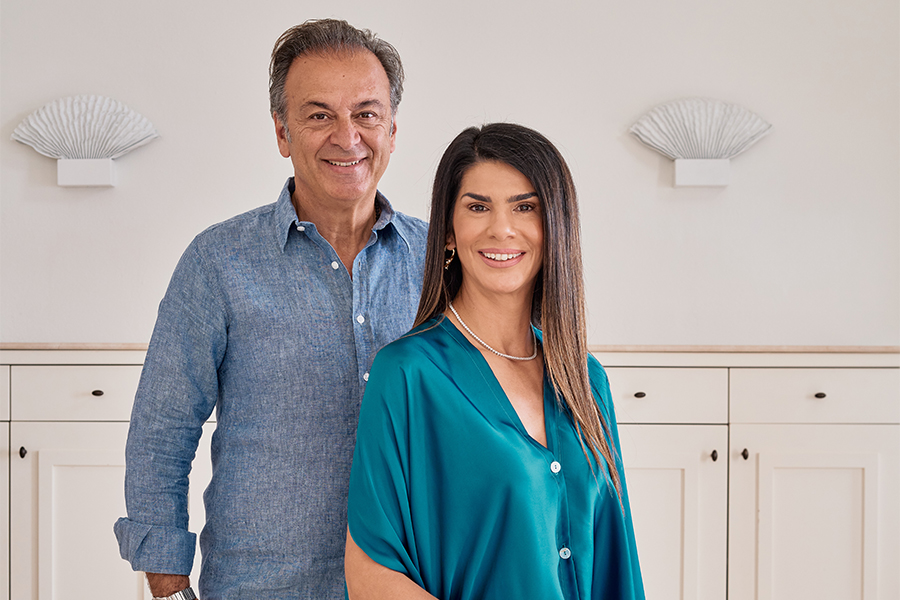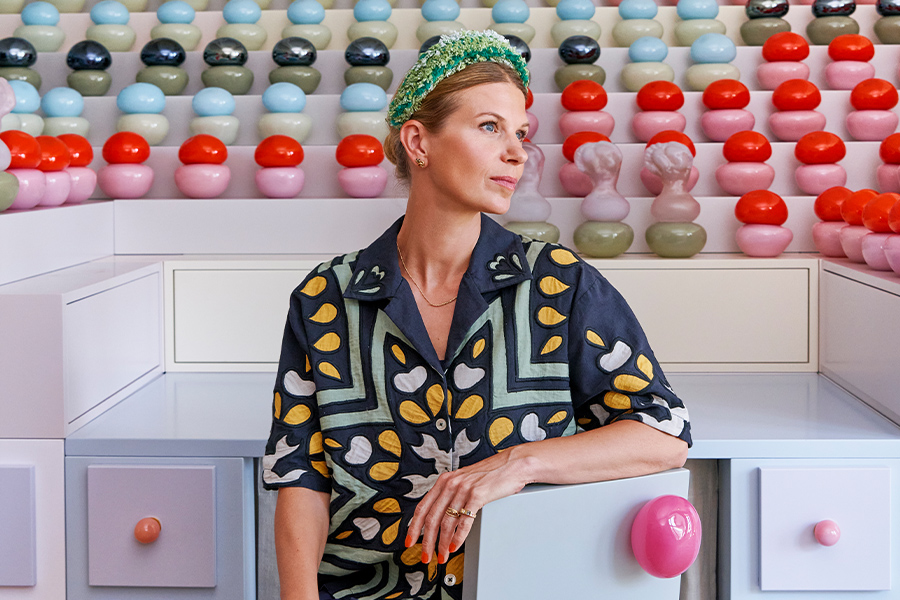Native to Penang, Malaysia, Soo K. Chan was raised understanding Eastern tradition, culture, and aesthetic. Combining that with a Western education (a Bachelor of Arts from Washington University in St. Louis and a Master of Architecture degree from Yale University), he has established himself as a contemporary designer with a truly balanced perspective. As founding principal and design director of Singapore-based multidisciplinary architecture, interior, landscape, and product design firm SCDA, established in 1995, he was drawn to hotels because, “It’s like somebody’s house,” he explains. “I started doing single family homes. I would design everything—the kitchen and the bathroom, the whole thing—so the hotel is a natural extension of that, a home away from home.”
Chan has worked with some of most renowned global brands, including Four Seasons, Hilton, Hyatt, and Marriott, and on projects that captivate, including the recently debuted Sanya EDITION in China (with design from Ian Schrager’s New York-based in-house team and Hong Kong’s CAP Atelier), but his desire to cultivate his creativity has not stopped there. Indeed, he’s expanded his talents into his own lifestyle brand, Soori (a combination of his name and his wife, fellow designer Ling Fu’s Indonesian name, Sri) with an emphasis on luxurious yet immersive cultural experiences and a wellness approach.
No project has excited his spirit more than Soori Bali, which was created on impulse, he says. Originally designed as a holiday home for Chan and his family, it grew organically as relatives and friends joined on getaways. “I didn’t speak to any marketing people, I didn’t speak to all these consultants,” he notes. “I just went and built it and said, let’s make 31 unique apartments.” Six years after opening, the holistic refuge has recently emerged from under Alila management (it’s now not only designed and owned by Chan but also operated by the Soori brand) and relaunched with updates to its expanded 48 villas and residences set along the black volcanic sand beach between Mount Batukaru and terraced rice fields. “Soori is a feeling. But to get that feeling, you need to be in control of the kind of choreographed space,” explains Chan. “It’s about a feeling of moving through space and about what you see, what you hear, what you smell.”
That also meant making the seaside island retreat—complete with a spa, library, 10-room estate, pools, courtyards, and two restaurants—sustainable. The EarthCheck-certified property not only takes its cues from the picturesque surroundings and Balinese architecture, but it’s also infused with local materials, such as natural stone found at nearby village quarries, and terracotta tiles and ceramics made by local artisans. “We bottle our own water, we don’t have plastics,” he adds. Next up: Soori Niseko in Japan, which is still in design development, a natural next step as it is another favorite vacation destination for Chan’s family. “Every time we ski, we look around and say let’s just make a Soori,” he laughs.
Although his focus has been on the hospitality industry for many years now, Chan has still continued his portfolio of residential projects, including the upcoming 31-unit Soori High Line in New York, scheduled to debut this October. The luxury building in Manhattan’s Chelsea neighborhood will boast high ceilings, large windows, and resort-style living through indoor-outdoor spaces, including ionized private saltwater pools woven into living rooms for some of the condos. Plus, it will be decked out in custom pieces from the Soori Living Collection for Poliform.
Even with passion project Soori and his thriving collection of work with his firm of more than 110 employees, there are still untapped areas that Chan is eyeing for the future, such as a yacht, or perhaps a submarine, and something in Napa Valley, California, which he says he sees as a “retirement project.”


